Cause: Explanation and Study Guide
What is a Cause?
A cause is an event, action, or process that brings about a result or effect. It is the reason behind something happening or the explanation for why something occurred.
Types of Causes
Causes can be categorized into different types:
- Immediate Cause: This is the direct reason that leads to an effect. It is the most obvious and closest cause to the effect.
- Underlying Cause: This type of cause is the deeper or hidden reason behind an effect. It may not be immediately apparent and often requires deeper investigation to uncover.
- Remote Cause: A remote cause is a factor that may have led to an effect but is further removed in time or space from the effect.
Examples of Causes
Here are some examples to illustrate different types of causes:
- Immediate Cause: A candle falling over and igniting a curtain.
- Underlying Cause: Poor maintenance leading to the failure of a machine.
- Remote Cause: Climate change leading to changes in ocean currents and affecting weather patterns.
Studying Causes
When studying causes, it's important to consider the following:
- Identify the immediate, underlying, and remote causes of an event or phenomenon.
- Consider the factors that contribute to a cause, such as environmental, social, or personal influences.
- Examine the relationships between causes and effects, including chains of causation and interconnected causes.
- Evaluate the significance and impact of different causes on a particular outcome.
Study Guide Questions
Use these questions to guide your study of causes:
- What are the immediate, underlying, and remote causes of a recent historical event?
- How do environmental factors contribute to the causes of natural disasters?
- Can personal choices and actions be both causes and effects of social change?
- Discuss the interplay between genetic and environmental causes of certain medical conditions.
- Analyze the causes of a specific problem in your community and propose potential solutions.
By understanding causes and their effects, we can gain insights into the workings of the world around us and make informed decisions in various aspects of life.
.◂Science Worksheets and Study Guides Fifth Grade. Flowers and seeds
Study Guide Flowers and seeds
Flowers and seeds  Activity Lesson
Activity Lesson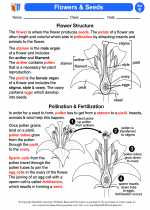 Flowers & Seeds
Flowers & Seeds  Worksheet/Answer key
Worksheet/Answer key Flowers and seeds
Flowers and seeds  Worksheet/Answer key
Worksheet/Answer key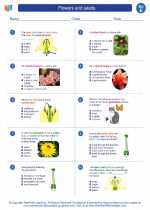 Flowers and seeds
Flowers and seeds  Worksheet/Answer key
Worksheet/Answer key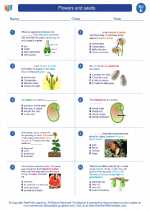 Flowers and seeds
Flowers and seeds  Worksheet/Answer key
Worksheet/Answer key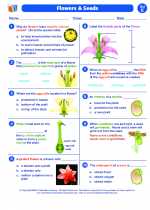 Flowers and seeds
Flowers and seeds  Vocabulary/Answer key
Vocabulary/Answer key Flowers and seeds
Flowers and seeds  Vocabulary/Answer key
Vocabulary/Answer key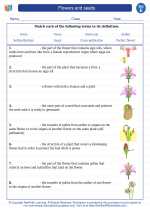 Flowers and seeds
Flowers and seeds 

 Activity Lesson
Activity Lesson
 Worksheet/Answer key
Worksheet/Answer key
 Worksheet/Answer key
Worksheet/Answer key
 Worksheet/Answer key
Worksheet/Answer key
 Worksheet/Answer key
Worksheet/Answer key
 Vocabulary/Answer key
Vocabulary/Answer key
 Vocabulary/Answer key
Vocabulary/Answer key

The resources above cover the following skills:
Life Science
All organisms have structures and systems with separate functions. Students can:
Develop and communicate an evidence-based scientific explanation of the role of different organs or structures that are important for an organism's survival - in both plants and animals